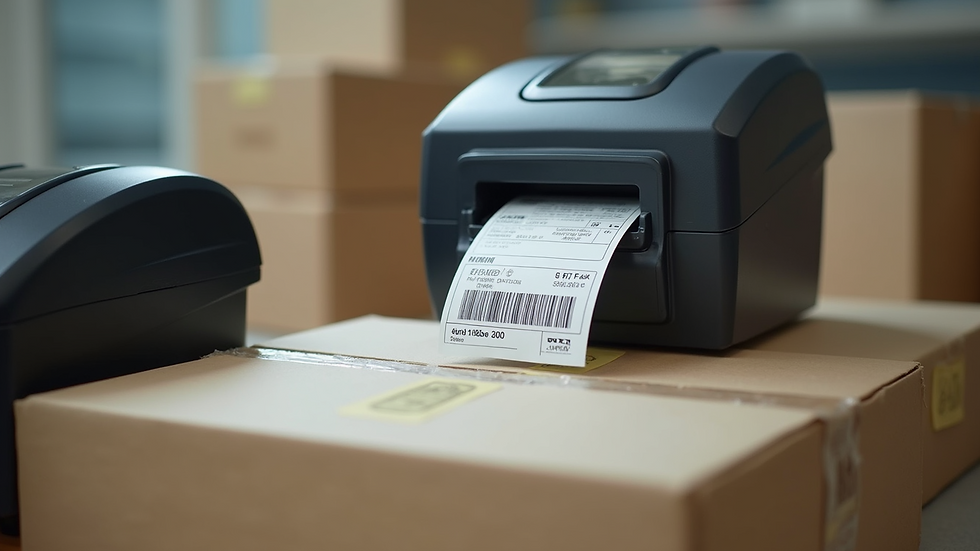Smart Strategies to Organize Your Home Efficiently
- Elsie Ndong
- Oct 27, 2025
- 3 min read
Keeping a home organized can feel overwhelming, but with the right strategies, it becomes manageable and even enjoyable. Efficient home organization not only creates a more pleasant living space but also saves time and reduces stress. This guide will walk you through practical tips and smart methods to transform your home into a well-ordered sanctuary.
Understanding the Basics of Home Organization
Before diving into specific techniques, it’s important to understand what home organization truly means. It’s not just about tidying up or decluttering; it’s about creating systems that work for your lifestyle. This involves:
Assessing your space: Identify problem areas and clutter hotspots.
Categorizing belongings: Group similar items together for easier access.
Designing storage solutions: Use containers, shelves, and organizers that fit your needs.
Maintaining order: Develop habits to keep your home organized long-term.
For example, if your kitchen counters are always cluttered, consider installing wall-mounted shelves or using drawer dividers to keep utensils and gadgets neatly arranged. This way, everything has a designated place, making it easier to find and put away items.

Effective Home Organization Tips for Every Room
Each room in your home has unique challenges and requires tailored solutions. Here are some smart strategies for common areas:
Living Room
Use multi-functional furniture like ottomans with storage inside.
Keep remote controls and magazines in baskets or trays.
Arrange books and decor items on shelves by size or color for a tidy look.
Bedroom
Invest in under-bed storage bins for off-season clothes or shoes.
Use drawer organizers to separate socks, underwear, and accessories.
Hang hooks behind doors for bags, scarves, or hats.
Bathroom
Use clear containers for toiletries to easily see what you have.
Install shelves or caddies in the shower to keep products off the floor.
Declutter expired or unused products regularly.
Kitchen
Group pantry items by type (canned goods, baking supplies, snacks).
Use stackable containers to maximize cabinet space.
Label shelves and containers to maintain order.
Home Office
Use filing cabinets or boxes for paperwork.
Keep desk supplies in small containers or drawer organizers.
Regularly purge unnecessary documents and digital files.
These targeted strategies help you create functional spaces that suit your daily routines.
How much does it cost to have the home edit organize for you?
Hiring a professional organizer can be a great investment if you want expert help to transform your space quickly. The cost varies depending on factors such as:
Size of your home or the area to be organized.
Complexity of the project (decluttering, storage solutions, redesign).
Location and experience of the organizer.
Duration of the service (hourly or flat rate).
On average, professional home organization services charge between $50 and $150 per hour. Some may offer package deals for whole-home projects or specific rooms. It’s a good idea to request a consultation to get a detailed estimate tailored to your needs.
Professional organizers bring expertise, tools, and motivation that can make a big difference, especially if you feel stuck or overwhelmed. They can also recommend products and systems that fit your lifestyle.
Incorporating Technology and Tools for Better Organization
Technology can simplify home organization in many ways. Consider these tools and apps:
Inventory apps: Track your belongings, groceries, or supplies to avoid overbuying.
Label makers: Create clear, professional labels for containers, shelves, and files.
Smart storage solutions: Modular shelving units and adjustable racks adapt to changing needs.
Digital calendars and reminders: Schedule regular decluttering sessions or maintenance tasks.
Using these tools helps maintain order and reduces the mental load of remembering where everything is stored.

Maintaining Your Organized Home Over Time
The key to lasting organization is consistent maintenance. Here are some habits to adopt:
Daily tidying: Spend 10-15 minutes each day putting things back in place.
Monthly reviews: Check for items to donate, recycle, or discard.
Seasonal swaps: Rotate clothing and decor to keep spaces fresh and uncluttered.
Involve the whole household: Assign simple tasks to family members to share responsibility.
If you find it challenging to keep up, consider using home organization services for periodic deep cleans and reorganizations. They can help reset your space and provide tips tailored to your lifestyle.
By integrating these strategies, your home will stay organized, functional, and welcoming for years to come.




Comments